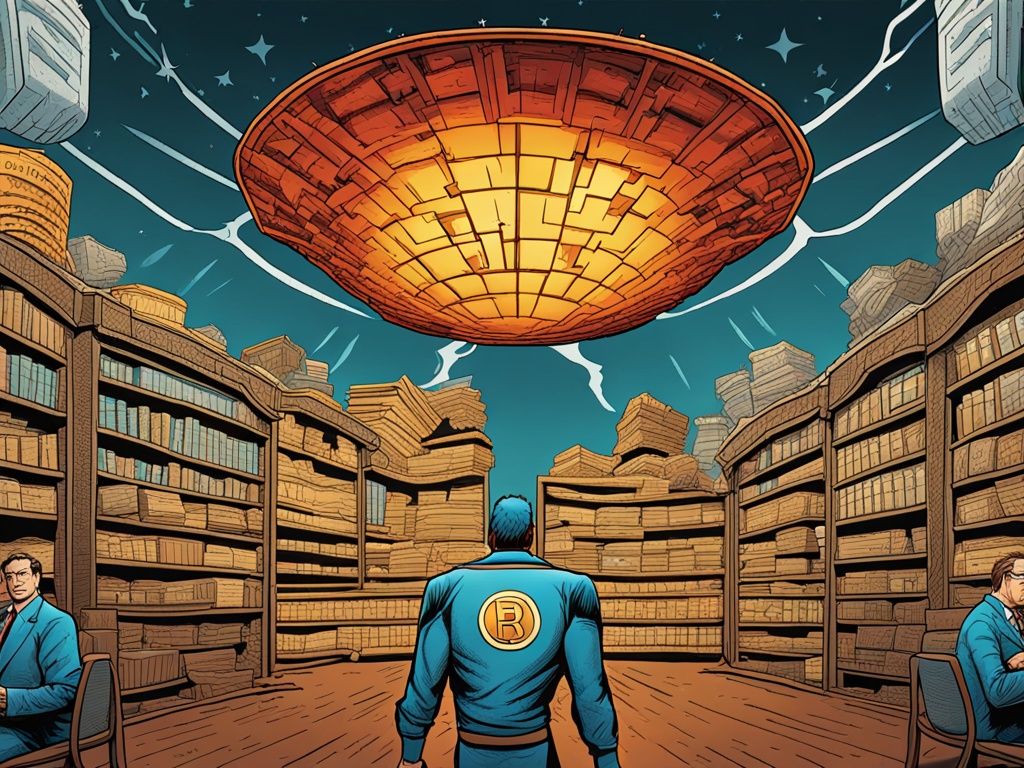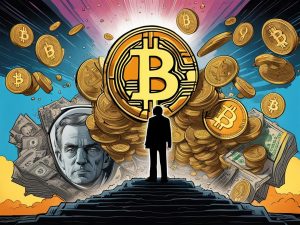Legal Developments in Ripple’s Case Against the SEC Updates 🚀
The legal proceedings between Ripple and the SEC continue to unfold with notable updates. Recently, a nonprofit entity known as Better Markets Inc. has submitted an amicus brief backing the SEC’s appeal. This effort comes after the SEC expressed dissatisfaction with the verdict delivered in 2023, contesting aspects of Judge Torres’s ruling which concluded that specific XRP sales on digital asset exchanges do not constitute securities.
Understanding the SEC’s Arguments 🔍
The crux of the SEC’s case is rooted in its contention that the judge erred in determining that certain “programmatic sales” of XRP were not categorized as securities. The SEC maintains that despite buyers not purchasing directly from Ripple, these transactions through exchanges should still fall under the securities classification.
Key Points of SEC’s Position:
- Misinterpretation of Sales: The SEC believes the judge mischaracterized the nature of these XRP sales.
- Direct Purchases vs. Exchange Transactions: The context of purchase matters, according to SEC, even when acquisition occurs through exchanges.
Attorney Jeremy Hogan shared his perspective on social media, indicating that Better Markets’ stance seems to misunderstand the ruling made by the trial judge. He pointed out that the determination was not about buyers not obtaining XRP directly from Ripple but rather centered on the nature of these transactions.
Insights from Attorney Jeremy Hogan 🧐
Hogan took a deep dive into the issue, expressing his belief that Better Markets’ amicus brief overlooks key elements of the judge’s reasoning. The judge concluded that XRP sales on exchanges did not designate them as securities because buyers engaged in “blind bid/ask” sales. This means that purchasers had no way of knowing whether they were obtaining XRP from Ripple or other sellers.
Significant Factors in Judge’s Decision:
- Blind Transactions: As these sales were “blind”, buyers couldn’t rely on Ripple’s influence to boost prices.
- Legal Reasoning Ignored: Better Markets failed to directly investigate how the trial judge applied the law to the scenario.
Hogan voiced his frustration about the lack of engagement with the fundamental issues at the heart of the judge’s ruling, particularly how it aligns with existing law. Better Markets claimed that if the trial’s decision remains unchanged, it would hinder the SEC’s ability to safeguard investors, which Hogan contested.
Defining Amicus Briefs ✍️
To provide clarity, let’s explore what an amicus brief entails. An amicus brief, or amicus curiae brief, refers to documentation submitted during a court case by parties not directly involved but who wish to offer additional insights that could aid the court’s decision-making process. The term translates to “friend of the court,” highlighting the purpose of adding expertise or perspectives relevant to the broader implications of the case at hand.
These documents can significantly influence court decisions by presenting arguments or data outside the foundational narratives presented by the principal parties involved. They often serve to elucidate complex issues or underscore the potential ramifications of decisions on related matters.
As the case develops, the responses and stances from various groups and legal experts will continue to shape the ongoing narrative and implications of this significant legal battle.
Hot Take on the Ripple vs. SEC Saga 🔥
As this year unfolds, the Ripple case against the SEC remains pivotal within the cryptocurrency landscape. It highlights critical questions concerning regulation, investor protection, and the classification of digital assets. Stakeholders in the crypto sector are keenly observing these proceedings, as their outcomes may set essential precedents for the future of digital currencies and exchanges.
The discussions and interpretations surrounding the rulings, particularly from varying perspectives such as that of Better Markets and responses from legal scholars like Hogan, emphasize the complexity and significance of the current legal environment. As the appeal progresses, the insights shared will be valuable for anyone watching the intersection of law and cryptocurrency.





 By
By
 By
By
 By
By
 By
By
 By
By